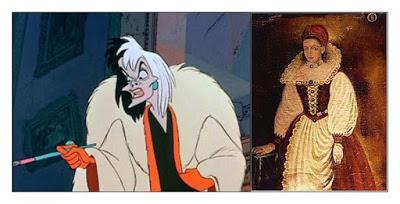I also established that though we are all evil pre-salvation, there are degrees of evil within people that are more deadly than others. Not everyone is as bad as they could be, but some people are. These essays are about how not to be deluded if you unfortunately encounter one of these more evil people.
I ended the previous essay by showing that two of the most beautiful living organisms in the world are also beautiful, the very deadly water hemlock plant, and the deadly but beautiful cone snail. Oftentimes it is the most beautiful that is the most deadly.
In this essay, we will discuss specifically how evil comes in a beautiful package, and then end with a final warning not to be deceived.
The world wants you to think that evil is only the malevolently grinning jack-o-lantern on the left. However, it is actually the handsome and charismatic serial killer on the right. (Ted Bundy)

In this post-modern society with saturating images coming at us 24 hours a day and 7 days a week, we're told by image-makers that evil looks like a Joker with smeared makeup, like a Jason with a hockey mask, or bloody axes with screaming teenagers in the background. Satan is the universe's most subtle creature and he knows that's just too easy.
Evil is actually not a cartoon character on the left but the gentle, wannabe artist Adolph Hitler on the right.

Left, cartoon character evil Joker. Right, all too real Adolph Hitler as a boy
In fact, evil is the soft-spoken, meek priest who molests your children. Evil is the diligent and organized masterful orator named Adolph Hitler who secretly hates Jews and will burn them in ovens. Evil is not the cartoon character Cruella De Ville, but the Countess Elizabeth Bathory, who was beautiful, of the nobility, but history's worst female murderer.
Countess Elizabeth Báthory de Ecsed (August 1560 – 21 August 1614) was a Hungarian noblewoman and alleged serial killer from the Báthory family of nobility in the Kingdom of Hungary. She has been labelled by Guinness World Records as the most prolific female murderer, though the precise number of her victims is debated. Báthory and four collaborators were accused of torturing and killing hundreds of young women between 1585 and 1609. The highest number of victims cited during Báthory's trial was 650. Wikipedia
Genesis 6:5 says that The Lord saw that the wickedness of man was great in the earth, and that every intention of the thoughts of his heart was only evil continually.
So by this we know that all non-saved people are evil. However, does it surprise you when I say that some people are working in league with satan more closely than others? That all have sinned, but there are degrees of sin? And if there are degrees of sin, there are degrees of sinner? As is stated in this Ligonier essay,
It’s clear that we have different degrees of sin when we consider the warnings of Scripture. There are at least twenty-two references in the New Testament to degrees of rewards that are given to the saints in heaven. There are different levels, different rewards, and different roles in heaven. The Bible warns us against adding to the severity of our judgment. Jesus said to Pontius Pilate, “He who delivered me over to you has the greater sin” (John 19:11). Jesus measures and evaluates guilt, and with the greater guilt and greater responsibility comes the greater judgment. It’s a motif that permeates the New Testament. RC Sproul, Are There Degrees of Sin?These are the personality-disordered narcissists, sociopaths, and psychopaths of the society. In no case that I know of do these evil people approach us with ragged clothes smelling of sulfur and gripping a bloody axe. In no case that I know of does an evil woman wearing a Dalmatian coat and smoking an elongated cigarette cruelly cackle to your face, thus alerting you to her evil. These more evil people will always appear as kind, beautiful, and helpful. They will appear never to hurt a fly and will tell you with all apparent sincerity that they want the best for you.
These more evil people are people with no conscience. These are the people who actually revel in the chaos they create, and they do it on purpose. These are the people who never murder, never cheat on their wives or husbands, never seem to do a harmful thing. Yet these are the people who make absolutely no attempt to apologize, reach agreement, be conciliatory, strive for peaceable harmony, or anything close to the normal relationship currency we're used to. They lie, manipulate, gaslight, control, and they do it all with a smile.
They will seem to be kind, but they will not be. If unfortunately encountering one of these people, we will ask ourselves,
'Did my friend just lie to me, again? Can't be, probably a mistake.'
'Their actions show that they hate children, but that can't be, I must be mistaken.'
'They don't seem to even care that they are causing chaos and upset in our marriage. Can't be, I am likely be wrong on this.'
It's not a communication error, it's not your fault, it's not just a mistake that can be cleared up. It's that the person is evil. Though we strive to give people the benefit of the doubt, and we should, some people are just plain evil. Fact. They won't murder you, but they like to hurt you in just as evil ways, in the sweetest manner possible. Not just once, but every day, as a life goal.
Though I don't normally seek wisdom regarding the human condition from Psychology, in the case of extremely evil people, the following 16 key behavioral characteristics that define psychopathy may prove helpful. We infrequently encounter evil in daily life in the fuller force I'm speaking of here, and our minds always will want to reject that that is what's happening.
From Psychology Today, we read that Hervey Cleckley's clinical profiles of How to Spot a Psychopath include:
- Superficial charm and good intelligence
- Absence of delusions and other signs of irrational thinking
- Absence of nervousness or neurotic manifestations
- Unreliability
- Untruthfulness and insincerity
- Lack of remorse and shame
- Inadequately motivated antisocial behavior
- Poor judgment and failure to learn by experience
- Pathologic egocentricity and incapacity for love
- General poverty in major affective reactions
- Specific loss of insight
- Unresponsiveness in general interpersonal relations
- Fantastic and uninviting behavior with alcohol and sometimes without
- Suicide threats rarely carried out
- Sex life impersonal, trivial, and poorly integrated
- Failure to follow any life plan
In my life I've encountered incompetent boobs, maniacal windbags, effective liars, grande cheats, and unrepentant adulterers. I myself was an unrepentant sinner for 42 years prior to salvation. Those sins can be dealt with in a different way than the purer evil of the psychopath, sociopath, and disordered narcissist can. In addition to being a sinner and encountering sinners every day, I have also unfortunately encountered a couple of psychopaths. These evil people are rarer but they do exist. I read a good book a many years ago called The Sociopath Next Door. In that book, author Dr. Martha Stout offers helpful advice. Even though I am not an expert on these more evil people, I optimistically tend to disagree with her statistic that 1-in-4 people are sociopaths. At least, I hope not! Dr. Stout writes,
How do we recognize the remorseless? One of their chief characteristics is a kind of glow or charisma that makes sociopaths more charming or interesting than the other people around them. They’re more spontaneous, more intense, more complex, or even sexier than everyone else, making them tricky to identify and leaving us easily seduced.Their masquerade is helped by their personal charm, beauty, winsomeness, and intelligence. Years ago, when I came across one, it took me a long time to settle on the fact that their evil was in fact evil. By then a lot of damage was done.
But enough of personal comment and psychological theories. What does the Bible have to say about evil? It does come in a beautiful package. Don't be lulled by Hollywood's depiction of it and don't be fooled if you unfortunately meet up with this kind of beautiful and deadly evil
The most evil person in the universe is also the most beautiful. It is said in of Lucifer through the lament in Ezekiel 28:12 that:
You had the seal of perfection, Full of wisdom and perfect in beauty.
Satan masquerades as an angel of light. (2 Corinthians 11:14).
Light is beautiful, light is good. But the key word is masquerade. You must be able to see what is under the light and not be fooled by appearances.
So it is no surprise if his servants, also, disguise themselves as servants of righteousness. Their end will correspond to their deeds. (2 Corinthians 11:15.)
Here, the servants of which the Bible speaks are not only satan's unholy angels who followed him into rebellion but also people falsely claiming to be followers of Jesus, but who aren't. They disguise themselves as servants of righteousness, too.
The 2 Corinthians 11:15 verse
Suggests these servants, who may be the false apostles, actually serve Satan and stand as a threat to the Church (compare 2 Corinthians 11:13). Source, Faithlife Study BibleThese evil ones are disguised. The key words in the two verses for the purpose of this essay are that satan masquerades, and his henchmen (and women) disguise themselves. What they disguise themselves with are beauty, kindness, intelligence, righteousness, and light. Too often, people are reluctant to peer under the mask. Even more frequently when they do peer, they deny what they plainly see. That's in defiance of what the Bible says to do. "For we are not unaware of satan's schemes so that he would get an advantage over us." (2 Corinthians 2:11). Don't be unaware, lest satan outwit you and gain an advantage.
We are reminded again that Jesus warned in Matthew 7:15 that these especially evil ones will come in sheep's clothing. They won't appear to you in rags, or bloody tatters like the movies show, but in fluffy, pretty, white sheep's clothing. Why are they especially evil? Because they do this under cover of Jesus' name. Unsaved people are just sinners, evil in what they do but they cannot help it. (1 Cor 5:12). These especially evil ones I'm talking of come in the name of Jesus and use His name to perform their deeds. And they do it beautifully. Because they're sociopaths. Charming, beautiful, and kind.
Satan made his evil look good and delightful, didn't he?
So when the woman saw that the tree was good for food, and that it was a delight to the eyes...(Genesis 3:6a).
When I was in Europe, I never saw an ugly Catholic cathedral.

Milan Duomo. EPrata photo

Pisa, 'Piazza Del Miracoli' plaza of miracles, so named
because of the architectural beauty of the structures
built by genius and capabilities of man. EPrata photo
Asherah poles were located at sacred sites. They are often mentioned in the context of Canaanite worship on "every high hill and under every luxuriant tree" (1 Kgs 14:23; 2 Kgs 21:7; Jer 17:2). An asherah pole is sometimes explicitly related to an altar of Baal—a Canaanite fertility deity (Judg 6:25, 28, 30; 2 Kgs 17:16; 21:3–4). Source-The Lexham Bible Dictionary.Sociopaths are remorseless and cannot love anyone except themselves. They have no conscience. They do not operate in the interpersonal the same way we do, in good faith, love, kindness, and repentance. Even sinners try to be good in their own way and attempt acts of kindness from a motivation to have a successful interpersonal relationship.
We seek peace, the especially evil one seeks chaos. We love harmony, they love destruction. They are accomplished at reaching their goals and they do it with a smile and a kind word. They kill joy, they annihilate faithfulness, they reject goodness. They do it all in beauty, and often, under the name of Jesus.
But God is beautiful too. So are his people. It takes diligence and discernment to detect the difference between the beautiful sociopath's evil and the beautiful sister who's simply stumbling. Between the psychopath's gorgeousness and the sinner who just does what he does because he doesn't know better.
Ultimately, God is Good and He will remove forever from His presence all evil and the people who bring evil. Pity the evil person and pray for their deliverance but do not tolerate their evil. Resist it. Rejoice that their evil deeds will be recompensed. Evil has a purpose, if merely to sharpen the Christian or greatly glorify God - and everything in between.
John Frame said in his book Apologetics to the Glory of God,
We cannot always understand why God has chosen evil events to accomplish these good purposes. We do know that God never foreordains an evil event without a good purpose (Rom. 8:28). There may be other reasons than the ones we have mentioned, either to be found in Scripture or to remain locked up in God's own mind. We know that God has a reason for everything he does. Everything he does reflects his wisdom. But he is under no obligation to give us his reasons.
Nevertheless, as we see evil used for good again and again in Scripture, can we not accept in faith that those evils which are yet unexplained also have a purpose in the depths of God's mind? Again, we do not have a complete theoretical answer to the problem of evil. What we do have is a strong encouragement to trust God even amid unexplained suffering. Indeed, the encouragement is so strong that one would be foolish not to accept it.
Thus, the beautiful but deadly flower water hemlock, the gorgeous and intricately barbed cone shell, the charismatic serial killer, the remorseless but kindly-acting sociopath in your circle, all have their purpose. Do not deny that evil exists, do not forget that it comes in a beautiful package, do not avoid acknowledging it if it appears, but always remember, that all things work to your good and the glory of God. The psychopath with no conscience will be seared in hell forever, and we will be dining with the King of Kings and Lord of Lords in joy and peace. Let his remorselessness be eternal. Let our gratitude be forever.
------------------------------------------------
Further Reading:
GotQuestions:
"What does the Bible say about a person who is a sociopath / psychopath?"
Answer: The terms sociopath and psychopath do not appear in the Bible. However, the Bible does mention behaviors that are characteristic of those that today are described by the nearly synonymous terms sociopathic and psychopathic.
In today’s criminal and psychological literature, a sociopath or psychopath is identified as one who is characterized by extreme self-centeredness and immaturity, shallow emotions (including reduced fear, a lack of empathy and remorse, low tolerance for stress, and little response to positive motivations), cold-heartedness, superficial charm, irresponsibility, impulsivity, criminality, a parasitic lifestyle and a desire to manipulate others. A psychopath is one who compulsively performs criminally selfish acts with no apparent conscience or concern about the welfare of his victims.
The Bible identifies such sociopathic and psychopathic behavior as among the severest moral and spiritual effects of man’s fall into sin. Jesus described such sins as arising from evil hearts (Mark 7:20–23). The apostle Paul identified godlessness as the root of such a deadly heart (Romans 1:28–32). The sociopathic heart produces the worst characteristics of sinful man’s nature (Romans 8:5–8), the worst effects of both genetic and environmental moral degradation. Early in human history, God wiped out all but eight people because of such universally incorrigible behavior (Genesis 6:5–13). Deuteronomy 21:18–21 prescribes for the Old Testament nation of Israel the legal consequence of such behavior: execution by stoning. Apparently, such behavior was considered by God to be so disruptive and damaging to the family and to society, so contrary to the character of the people that bore His name and supposedly reflected His image, as to be intolerable.
The New Testament does not offer specifics on civic dealing with these serious problems. Its teachings about morality and immorality of every kind, and its hopeful appeals and invitations to repentance, conversion, and transformed life in Christ, certainly apply to a psychopath as to any sinner. Paul, describing conduct that included sociopathic characteristics, wrote to one congregation of believers in Jesus Christ, “Such were some of you” (1 Corinthians 6:9–11, emphasis added). God is able to rescue and restore to righteousness the most corrupt heart. See Ephesians 4:24; Colossians 3:1–17; Romans 7; Romans 8:1–17 and 28–30.
